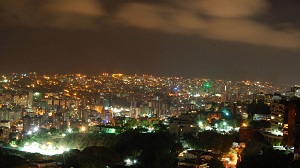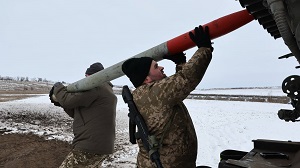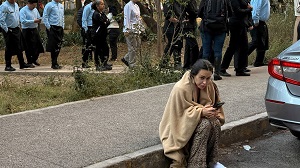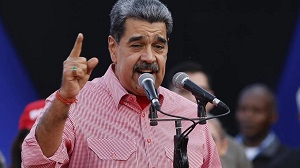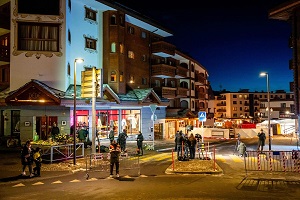How Houthis manage to control Yemen? - By Abdulrahman al-Rashed, Al Arabiya
The Houthis are a small group that lives in North Yemen. Iran embraced them to confront Saudi Arabia and Sanaa’s government and as part of its project to plant regional agents like the Lebanese Hezbollah party. The group’s command has been linked to the Iranian Revolutionary Guards for more than 20 years now, and it’s nothing new like some think.
With time, the Houthis began to bear great resemblance to other Iranian armed groups in the region as they were trained on using weapons, organizing their ranks and spreading propaganda. Iran chose the group’s name and slogan.
The Houthis’ party is actually called Ansar Allah. Its slogan which is repeated on a daily basis is the same as Iran’s: “Death to America. Death to Israel. Damn the Jews. Victory to Islam.”
ALSO READ: Hundreds of detainees in Yemen tortured to death in Houthi prisons
The Houthis’ are different from Hezbollah in the fact that they constitute a small number in Yemen, as they are less than 5 percent of the population. The Iranians sought to support them while relying on the more advanced Lebanese Hezbollah party.
Hezbollah is thus managing the Houthis’ affairs in Yemen and is making use of its long military, social and propaganda experience in Lebanon. It is preparing the Houthis to control Yemen. This is why we have seen the Houthis’ develop their skills in using weapons, including ballistic missiles, in the past three years.
This is in addition to forced recruitment operations as the Houthis do not hesitate to execute those who refuse to fight for them and to kill the parents of the escaped recruits.
Targeting the Houthis via aerial bombardment alone will not end their threat and an effort will have to be made to study the organization’s nature and activities on the ground
Abdulrahman al-Rashed
Local commanders
A Yemeni friend told me that the Houthis assign local commanders in the areas they seize, recruit children between the ages 11 and 17 and execute those who reject recruitment as part of their intimidation policy to subjugate tribal areas which could not be controlled by any authority before.
He also said that the Houthis’ propaganda resembles the Iranian Revolutionary Guards’ as they convince young people that by fighting Saudi Arabia, they would be fighting America and Israel. He added that the Houthis make small transistor radios available due to power outages and lack of television sets in rural areas.
The Houthis closed 15 dailies and 9 public and private television stations. They only kept two channels that are affiliated with them. Iran taught its recruitment and ideological experiences to its Houthi followers in Yemen and trained them on how to collect money and other financial resources. The availability of money is the secret to the Houthis’ capability to continue fighting.
Most funds are collected via checkpoints that are used to impose taxes on individuals, vehicles and merchandise on areas they control through the power of arms. They also control the Hodeidah port, which is Yemen’s major naval path, and own almost all oil filling stations.
ALSO READ: Yemeni killed in Houthi prison showed signs of torture, advocacy group says
Members of the Lebanese Hezbollah party handled the organization and planning process for their Houthi brothers, which are considered underdeveloped in in their structure as most of their middle leaders are illiterate.
Considering the small size of the group, the biggest challenge is related to extending domination via alliances, forced recruitment and ideologically convincing people, particularly young men, of their cause and letting them spread panic among people in areas they control.
The Houthis resemble ISIS a lot. Both are actually terrorist groups in terms of ideologies and practices. Their philosophy is based on submitting to leadership and propagating terror. We’ve previously seen how ISIS, despite its small size, seized control of heavily populated areas in Iraq and Syria and of cities whose population is more than 1 million, like Mosul.
It was not possible to liberate these cities without international military efforts. Targeting the Houthis via aerial bombardment alone will not end their threat and an effort will have to be made to study the organization’s nature and activities on the ground.
